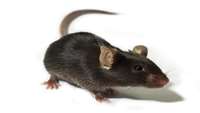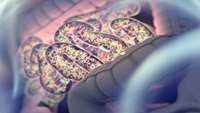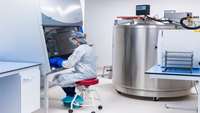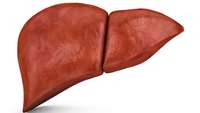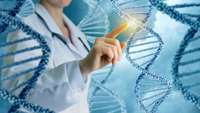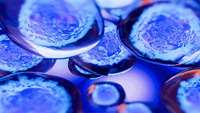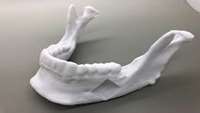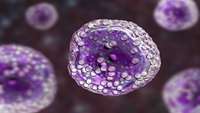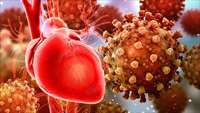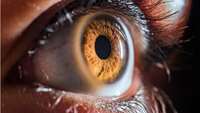Gut microbiome influences ALS outcomes
Harvard University scientists have identified a new gut-brain connection in the neurodegenerative disease amyotrophic lateral sclerosis, or ALS. The researchers found that in mice with a common ALS genetic mutation, changing the gut microbiome using antibiotics or fecal transplants could prevent or improve disease symptoms.
Preclinical study offers hope for Hirschsprung's disease
Babies with Hirschsprung's disease are born with an incomplete or absent gut nervous system. Children's Hospital Los Angeles investigator Tracy Grikscheit, MD, runs a laboratory that investigates the therapeutic potential of tissue engineering—the induced growth of healthy tissue using stem cells.
Abu Dhabi stem cell center develops ‘promising’ new COVID-19 treatment
An aerosol treatment for the coronavirus disease (COVID-19) developed by a team of doctors and researchers in the UAE had shown “promising” results, the Emirates News Agency (WAM) reported on Friday.
Japan newborn gets liver stem cells in world first
Doctors in Japan have successfully transplanted liver cells derived from embryonic stem cells into a newborn baby, in a world first that could provide new treatment options for infants.
Six patients with rare blood disease are doing well after gene therapy clinical trial
UCLA researchers are part of an international team that reported the use of a stem cell gene therapy to treat nine people with the rare, inherited blood disease known as X-linked chronic granulomatous disease, or X-CGD. Six of those patients are now in remission and have stopped other treatments.
Mesoblast’s remestemcel-L receives FDA IND clearance for treating COVID-19 patients with acute respiratory distress
Regenerative medicine company Mesoblast (ASX: MSB) has received US Food and Drug Administration Investigational New Drug (IND) clearance for its remestemcel-L treatment to be used in COVID-19 patients presenting with acute respiratory distress syndrome.
Team engineers 3-D-functional bone tissues
Dr. Akhilesh K. Gaharwar, associate professor, has developed a highly printable bioink as a platform to generate anatomical-scale functional tissues. This study was recently published in the American Chemical Society's Applied Materials and Interfaces.
New model shows how cells that cause liver cancer are created
Liver cancer is one of the deadliest cancers. It is insidious and does not present symptoms until it has progressed considerably, at which point, treatment options are limited and chances of survival are low.
Researchers look at how COVID-19 affects the heart
Researchers are finding about half of all patients with COVID-19 admitted to an intensive care unit have heart damage.
Study shows stem cells constitute alternative approach for treating corneal scarring
Infection, inflammation, trauma, disease, contact lenses—all of these and more can lead to corneal scarring, which according to the World Health Organization is a leading cause of blindness worldwide


